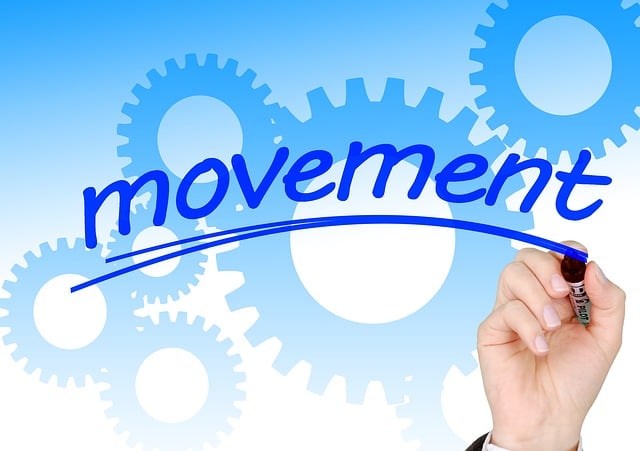Albany divorce mediation offers a collaborative approach, prioritizing open communication between couples to achieve peaceful separations. Trained professionals facilitate discussions, ensuring skilled management of sensitive conversations and tailored resolutions. By choosing mediation over litigation, families maintain respect, reduce stress on children, and foster positive transitions amid separation. Experts like O'Connell and Aronowitz at 54 State St guide clients through non-litigious processes, promoting understanding, mutual respect, and efficient resolutions while reducing legal fees and emotional stress. Effective communication strategies emphasize open dialogue, prioritizing the well-being of children and co-parenting relationships post-divorce.
“Discover the transformative power of cooperative divorce planning with Albany divorce mediation at its core. This collaborative approach prioritizes peace and mutual understanding, offering families an alternative to contentious legal battles. Our article explores the benefits of this method, from fostering healthier co-parenting relationships to the role of professionals in guiding separations smoothly. We delve into effective communication strategies, legal considerations, and creating tailored agreements, providing insights crucial for a peaceful divorce process.”
- Understanding Albany Divorce Mediation: A Collaborative Approach
- Benefits of Cooperative Divorce Planning for Families
- The Role of Professionals in Facilitating Peaceful Separations
- Communication Strategies for Effective Co-Parenting
- Legal Considerations and Creating a Customized Agreement
Understanding Albany Divorce Mediation: A Collaborative Approach

In the context of cooperative divorce planning, Albany Divorce Mediation stands out as a collaborative approach designed to help couples navigate their separation in a peaceful and mutually beneficial manner. This process emphasizes effective communication for divorce mediators, fostering an environment where both parties can openly discuss their needs and concerns without the tension often associated with traditional legal proceedings. By choosing mediation over hostile divorce proceedings, couples have the opportunity to maintain a certain level of respect and dignity while making crucial decisions about their future.
Albany Divorce Mediation is facilitated by trained professionals who guide the process, ensuring that both sides feel heard and understood. Mediation training for legal professionals plays a vital role in equipping them with the skills to manage these sensitive conversations effectively. Through this approach, couples can explore alternatives to hostile divorce proceedings, ultimately achieving resolutions tailored to their unique circumstances.
Benefits of Cooperative Divorce Planning for Families

Cooperative divorce planning offers numerous benefits for families navigating the complexities of separation. By prioritizing open communication and mutual understanding, couples can create a more harmonious transition during what is often a challenging time. This approach encourages parents to work together towards shared goals, fostering an environment where children feel secure and loved, regardless of the changes in their family structure.
In contrast to traditional litigation, cooperative divorce planning promotes non-litigious ways to end marriages. Families can combat legal battles over assets and custody by making decisions collaboratively. For instance, couples can schedule their meeting with a qualified mediator like O’Connell and Aronowitz at 54 State St, Albany, NY 12207, to discuss terms that meet everyone’s needs without the need for court intervention. This method helps preserve relationships, minimizes stress on children, and ensures a more efficient resolution, allowing families to move forward with their lives in a positive manner.
The Role of Professionals in Facilitating Peaceful Separations

In cooperative divorce planning, professionals play a pivotal role in facilitating peaceful separations. Albany divorce mediation specialists are trained to help couples navigate complex emotions and negotiate fair agreements without resorting to litigation. These experts create a safe and supportive environment, enabling spouses to communicate openly and make joint decisions regarding property division disputes, child custody arrangements, and other critical matters. By fostering understanding and mutual respect, mediators help couples find sensible divorce options near me that meet the needs of all involved parties.
Professionals in Albany divorce mediation also assist in decoupling financial affairs and managing expectations, which are often significant sources of conflict during a separation. They guide clients through non-litigious ways to end marriages, ensuring that the process is as smooth and amicable as possible. This approach not only reduces legal fees but also minimizes emotional stress for everyone involved, allowing couples to move forward with their lives in a healthier and more constructive manner.
Communication Strategies for Effective Co-Parenting

Effective communication is a cornerstone of successful cooperative divorce planning. Co-parents must learn to navigate conversations about their children’s needs and future arrangements with sensitivity and clarity. This often involves setting aside emotional triggers, focusing on factual information, and actively listening to each other’s perspectives. Albany divorce mediation services at O’Connell and Aronowitz at 54 State St, Albany, NY 12207, emphasize open dialogue as a means to resolve conflicts amicably. By scheduling your meeting with these professionals, couples can gain valuable insights into facilitating constructive conversations, ensuring their discussions remain child-centered and respectful.
Utilizing specific communication strategies, such as I-messages (e.g., “I feel…”), validating each other’s feelings, and avoiding blame or criticism, fosters a more collaborative environment. Co-parents should strive to maintain open lines of communication, even during disagreements, to ensure their children remain the top priority in the divorce process. This approach, encouraged by Albany divorce mediation experts, allows for better decision-making, reduces stress on both parents and children, and paves the way for a more harmonious co-parenting relationship moving forward.
Legal Considerations and Creating a Customized Agreement

When considering a cooperative divorce in Albany, couples often look to alternative dispute resolution methods like mediation or collaborative law to navigate the legal process. These non-litigious ways to end marriages prioritize open communication and mutually agreeable solutions over adversarial proceedings. In New York state mediation for divorce, trained professionals facilitate discussions between spouses, helping them create a customized agreement that meets their unique needs.
Legal considerations play a crucial role in this tailored approach. Each state has its own rules and regulations regarding divorce, so it’s essential to consult with an experienced attorney who can guide you through the process. O’Connell and Aronowitz, for example, offer specialized services in Albany divorce mediation, ensuring that all legal aspects are addressed while fostering a collaborative atmosphere. By combining professional guidance and open dialogue, couples can achieve a fair and lasting agreement without the stress and expense of traditional litigation.
Cooperative divorce planning, facilitated by Albany divorce mediation techniques, offers families a peaceful and collaborative alternative to contentious legal battles. By prioritizing open communication, mutual respect, and shared decision-making, couples can navigate their separation while minimizing stress and preserving the well-being of their children. Professionals play a crucial role in guiding this process, ensuring that every aspect—from child custody arrangements to financial settlements—is tailored to the unique needs of the family. Embracing these strategies not only streamlines legal proceedings but also paves the way for a more harmonious post-divorce relationship between ex-spouses and co-parents.














